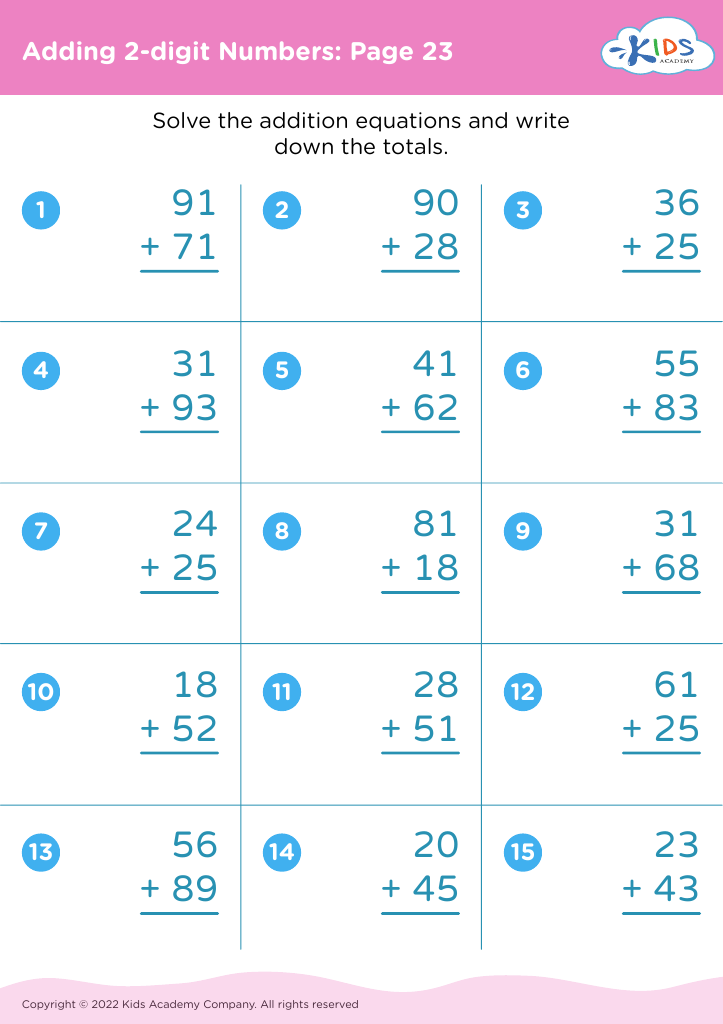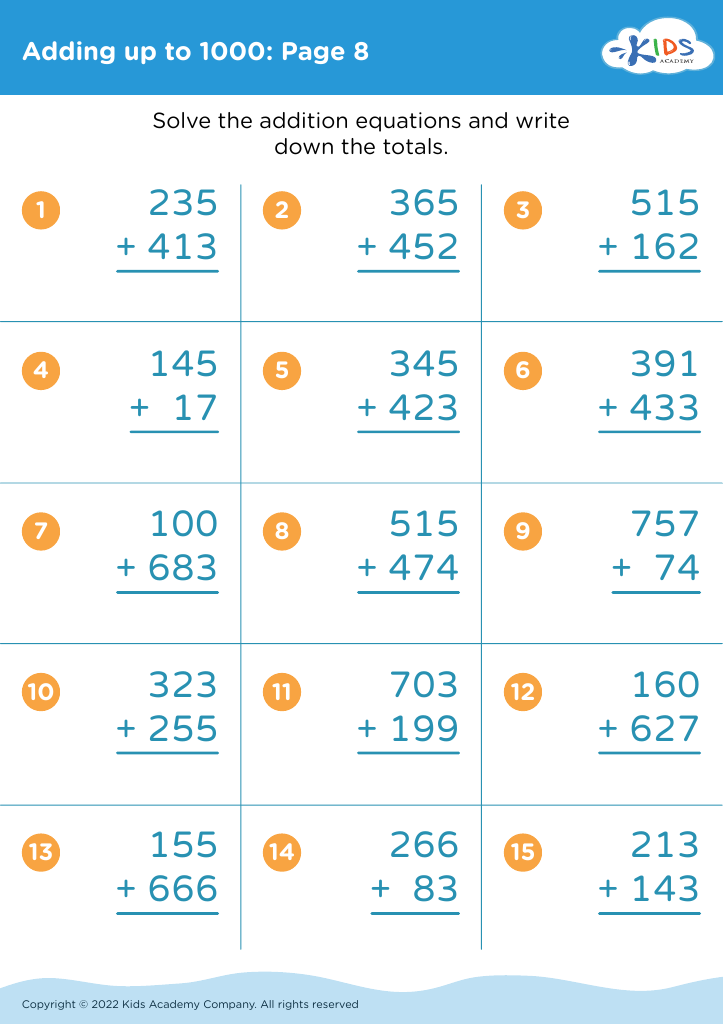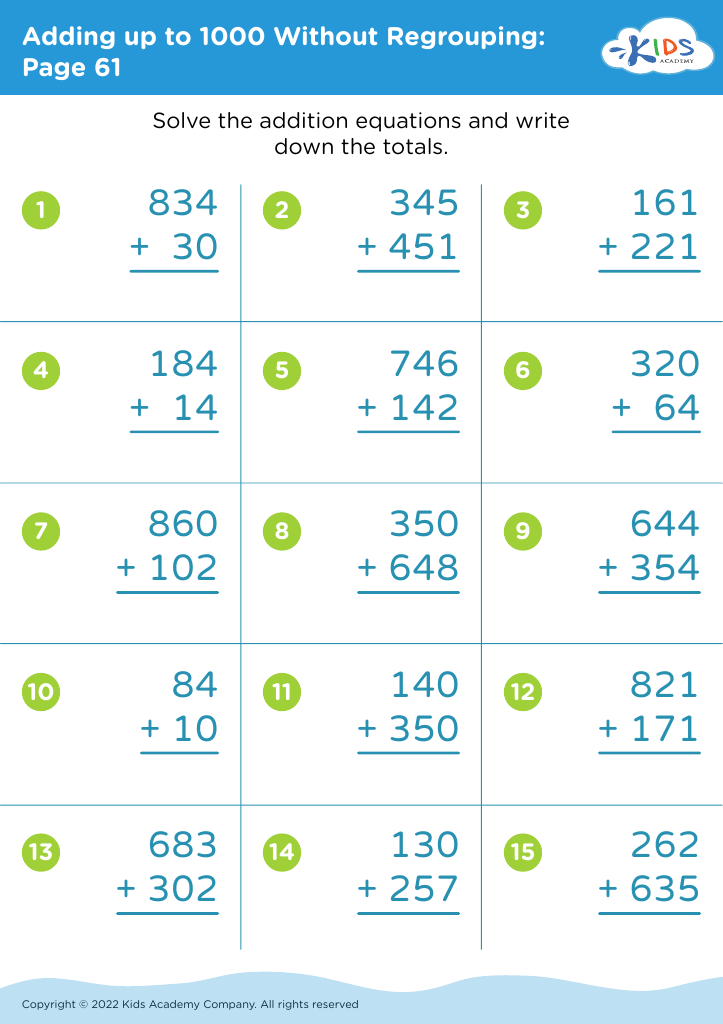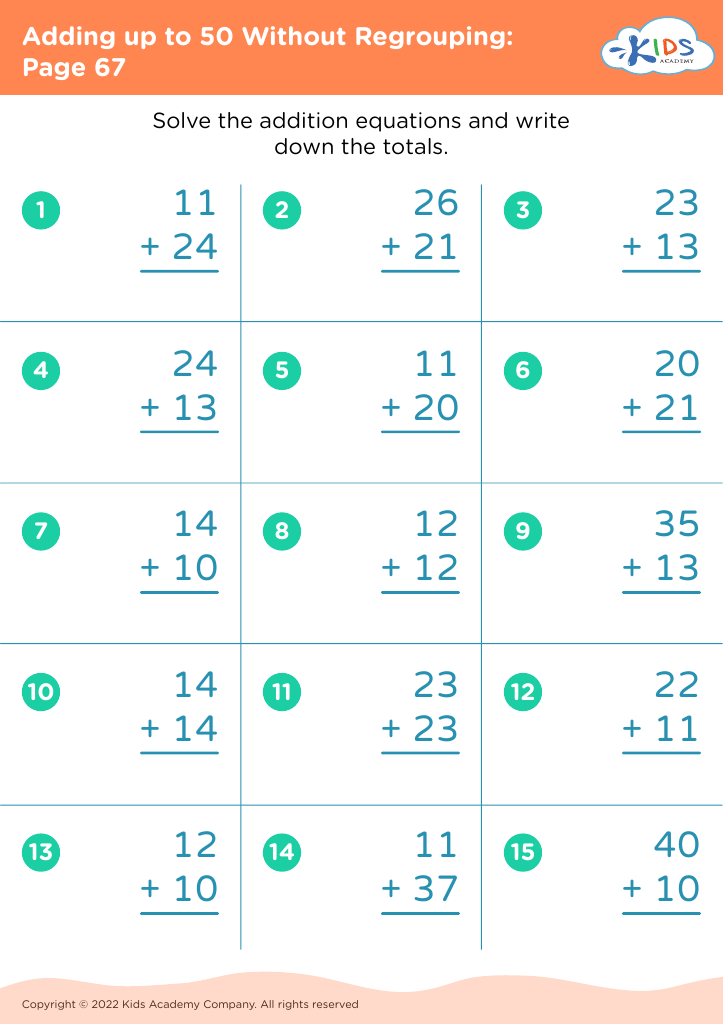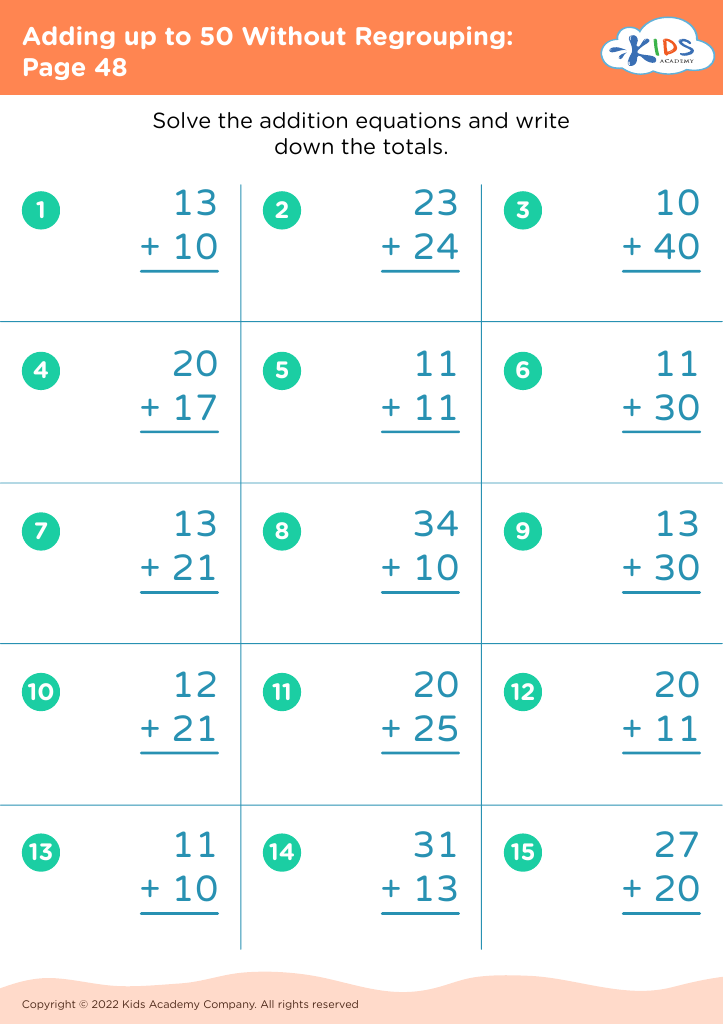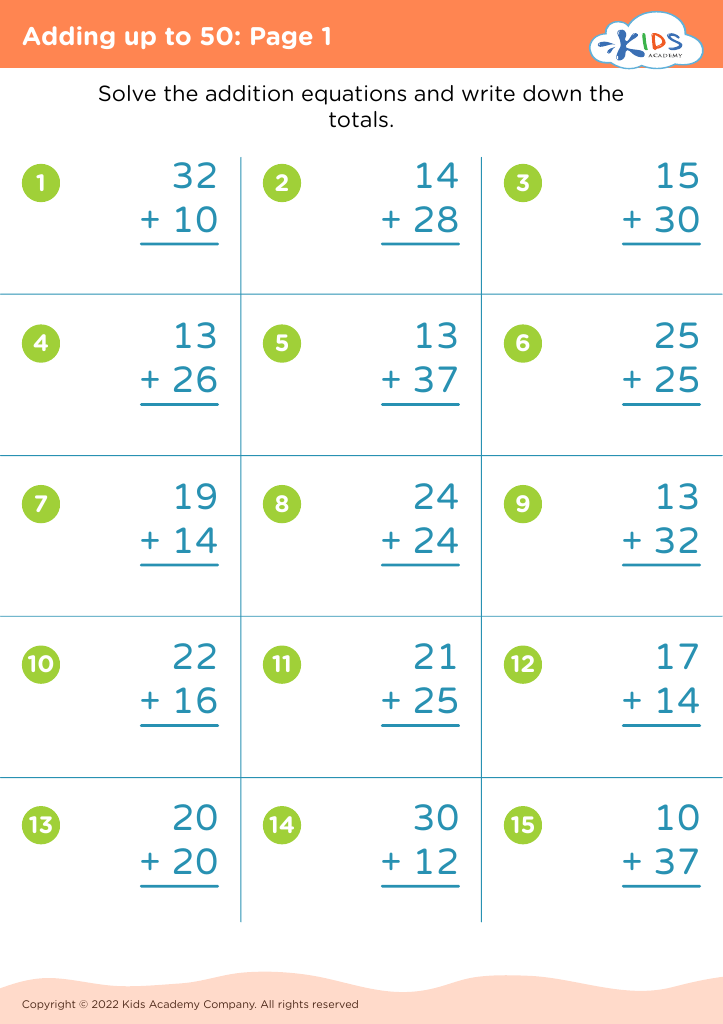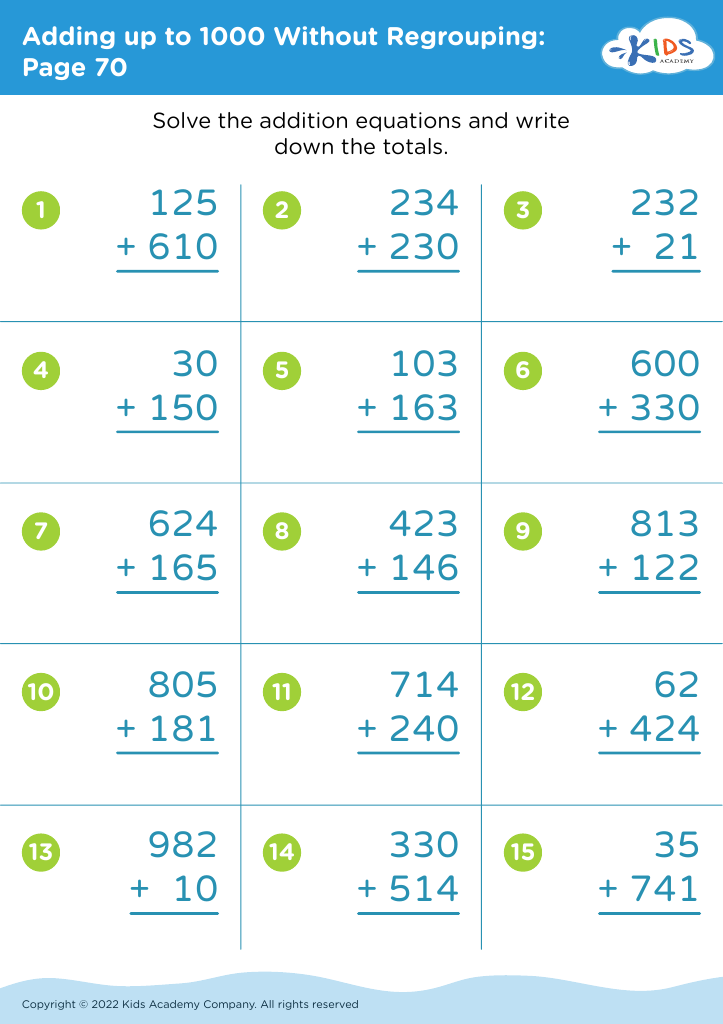Basic Addition Addition Worksheets
16 filtered results
-
From - To
Discover a world of fun and learning with our Basic Addition Worksheets on Kids Academy. Perfect for early learners, these printable worksheets provide engaging activities to practice essential addition skills. Our thoughtfully designed sheets help children grasp basic concepts, improve counting ability, and boost confidence in math. With colorful illustrations and exercises tailored for beginners, these resources make addition enjoyable and effective. Ideal for both classroom use and homeschooling, our worksheets are your go-to tools for building a strong mathematical foundation. Download today and watch your child’s love for math grow!
Basic addition is one of the foundational cornerstones of mathematics and plays a crucial role in a child's overall cognitive development. Parents and teachers should care about it because mastering basic addition sets the stage for more advanced mathematical concepts, such as subtraction, multiplication, and division.
Firstly, it enhances logical thinking and problem-solving skills, which are applicable in numerous real-life scenarios. For instance, children use addition when counting objects, telling time, or even during play activities like board games. A solid understanding of basic addition helps alleviate future math-related anxieties, often providing a sense of confidence and achievement.
Secondly, early proficiency in addition assists in academic readiness and success. Many educational curricula build on the principle that students understand basic addition by the time they move on to more complex arithmetic. Those who struggle with it may find themselves lagging behind their peers, affecting their self-esteem and overall attitude towards learning.
Finally, cultivating numeracy skills at a young age supports a child's overall brain development. It enhances memory, attention to detail, and the ability to quickly process information. This groundwork in numbers thus positively impacts other areas of a child's life, bolstering both their academic and personal growth.
In essence, prioritizing basic addition is not only about learning numbers, but it's also about shaping well-rounded, prepared, and confident young individuals.

